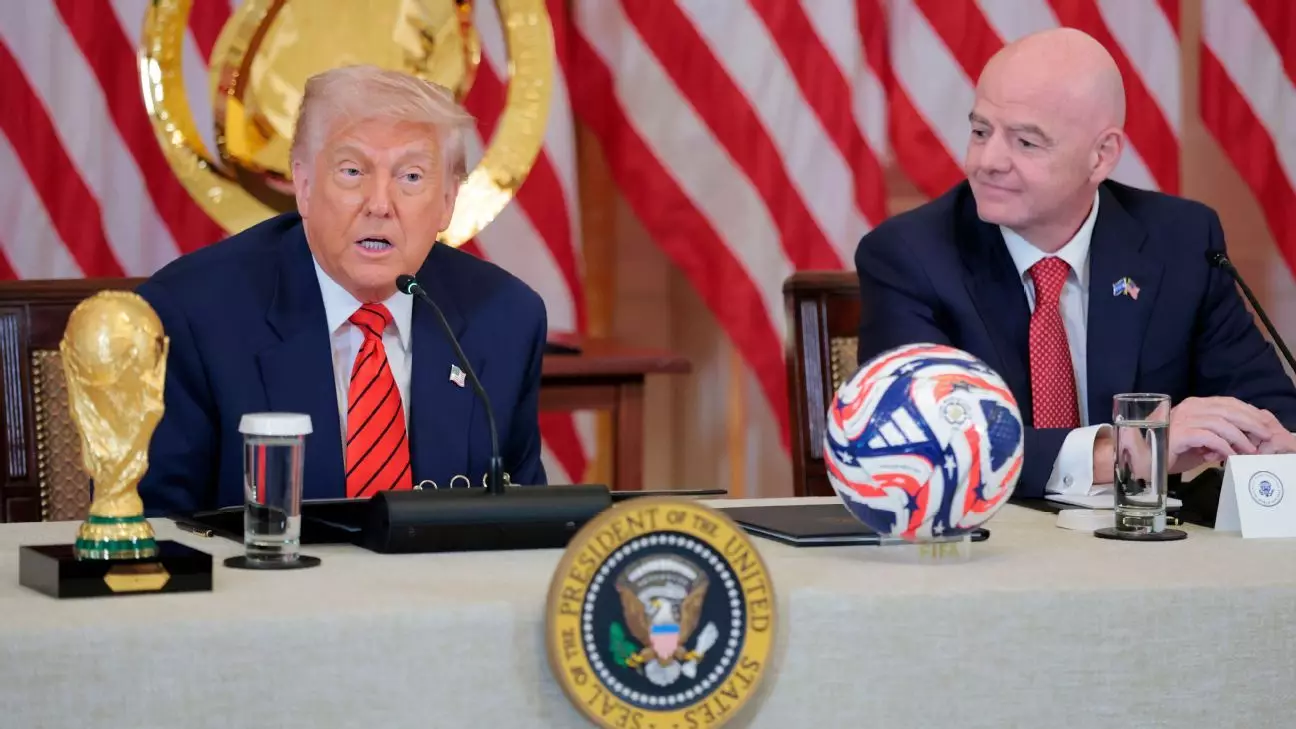In an era where sports transcend mere entertainment and enter the realm of diplomacy, President Donald Trump’s recent comments regarding Russia’s potential participation in the 2026 World Cup offer a fresh, yet controversial, perspective on the interplay between athletics and international relations. Following Russia’s invasion of Ukraine, FIFA and UEFA banned its national teams from international competitions. This suspension reached a pivotal moment when Trump suggested that reinstating Russia in these competitions could serve as a motivational catalyst for peace negotiations with Ukraine.
Sport as a Catalyst for Change
Sport has long been recognized as a powerful political tool, with the capacity to unite or divide nations. Trump’s notion that the desire to compete in the prestigious World Cup could act as an “incentive” for Russia to cease hostilities raises critical questions: Can the allure of international competition truly influence military decisions? The historical precedent suggests that it might. Instances abound where diplomatic relations have been eased through sporting events; however, the question remains whether this tactic could be effective amid the current geopolitical climate fraught with tension.
By suggesting that the global stage of the World Cup could entice Russia towards peace, Trump paints a picture of a world where shared goals may foster understanding. Yet, we must tread carefully. Peace negotiations should not hinge on sporting events, which could trivialize the gravitas of diplomatic efforts. While the dream of a unified celebration of sport is appealing, it runs the risk of oversimplifying complex international relationships.
The Role of FIFA and UEFA
FIFA President Gianni Infantino, who sat alongside Trump, clearly acknowledged the current ban, illuminating the regulations that govern international football. Infantino’s emphasis on the hope for peace was enlightening, yet it also highlighted FIFA’s significant role as a global authority. It poses the question: should sports organizations be mediators in international conflicts, or simply maintain neutrality? The expectation placed on FIFA to facilitate change can be both empowering and burdensome.
The call for Russia’s reinstatement also brings to light the responsibilities and moral obligations of governing bodies. In a world grappling with humanitarian crises, these organizations must carefully navigate their responses to political realities without compromising their integrity or mission.
A Double-Edged Sword
While the idea of sports diplomacy is compelling, it is fraught with implications. Utilizing the 2026 World Cup as leverage to broker peace could inadvertently shift focus away from the actual atrocities taking place. The reality remains grim; war continues to claim thousands of lives. For Trump to use such a pivotal platform as the World Cup in this context can be seen as a misstep, as it potentially diminishes the tragedy experienced by those affected by the conflict.
As nations work towards resolutions, it is crucial for leaders to consider the weight of their words. The intersection of sport and international relations should prioritize humanity over politics. If the ultimate goal is a harmonious resolution to violent conflict, then the values we associate with sports—unity, respect, and dignity—must come first. Only then can something as joyous as the World Cup serve as a genuine platform for peace.

Leave a Reply